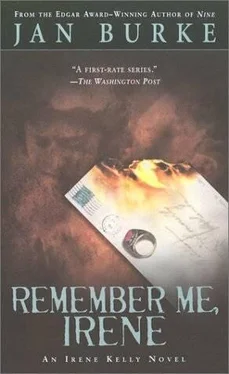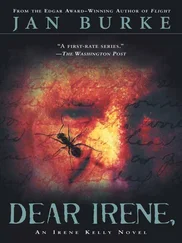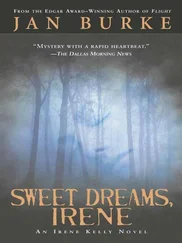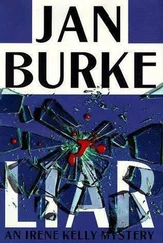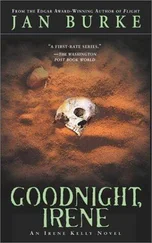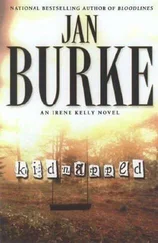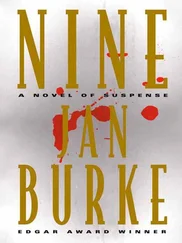“Are they sure? It’s been so cold the last few days. Haven’t they been overcrowded?”
“Yes. They’re sure. They’ve held his place for him as long as they could each night. But he hasn’t checked in. I even looked at the log for the locker room. He hasn’t been to his locker since Wednesday night.”
“Wednesday night? The night of the SOS meeting?”
“Yes. I guess I was too optimistic about him.”
I felt myself bristle. “You said he was doing well, was on the mend.”
She sat back a little, then said in a low voice-each word enunciated as if English were not my native language-“He was. But when you’ve been in my line of work long enough, you learn that nothing is very certain when it comes to substance abuse recovery.”
“This isn’t about your line of work,” I hissed. “This is about Lucas Monroe. A human being. You said-”
“Keep your voice down!” She looked toward Claire, then went on. “I said seeing you really made a difference, and I never should have said a word to you about him.” I knew the look on her face. Every reporter has seen it a million times. It was the whoops-I’ve-told-you-too-much look. The look that always follows it is one you can see on a mule. “If he hadn’t asked me to say hello to you,” she went on peevishly, “I wouldn’t have mentioned him to you. It came very close to breaking a professionally privileged confidence-”
“Cram your professional confidence!” I snapped, only to realize that I had spoken loudly enough to cause heads to turn. A lady in front of me scowled so hard I was afraid she’d never get her face straightened out again.
I was ashamed to notice that even Claire had been disturbed by my voice; she was looking toward us. In the next moment her heretofore blank gaze seemed to focus on me, and her brows drew together. I mouthed an apology, but she leaned over to the woman who sat next to her, an older person who sat between Claire and her sister. From the back, I could only see gray hair and a broad back stretching a dark dress. The lady glanced over her shoulder at me, holding the corner of her glasses as she peered over the rims. She nodded, rose, and moved slowly toward us. She was an apple-shaped woman, a wonder of balance as she trod carefully in her sensible shoes.
Oh hell, I thought, this old biddy is going to scold me and ask me to leave.
In the next moment, I decided that would be a blessing. The growing crowd made the air in the church steadily more stuffy, and my desire to escape the room had grown proportionately. I was angry with Roberta, probably unreasonably, which only made me more anxious to evade the “closure” she would undoubtedly seek. And, as will happen at funerals, I selfishly remembered those friends and family members I had lost over the years, and fought hard to prevent each shard of old grief from piercing whatever get-on-with-life barrier I had built around it.
Roberta seemed to think the lady was approaching her, but the woman bent over and laid a cool, paper-dry hand on my wrist. Roberta leaned back to avoid smothering in the woman’s pillowy, ample bosom. I heard a lovely drawl when the lady said, “I’m Claire’s Aunt Emeline. Forgive me for disturbing you, sugar, but Claire wondered if you might be willing to please come up and sit beside her. You will, won’t you?”
“Certainly,” I said, and stood up to move out of the pew.
Roberta also stood. “I should be with Claire, too.”
“Oh, don’t trouble yourself,” Aunt Emeline said to her, with a cool look that made Roberta sit back down.
Claire nodded a greeting, but didn’t say anything to me or to her aunt. Alana moved over, so that Claire sat between her aunt and me. Claire remained silent, staring at the coffin throughout the service. I tried very hard not to think of Ben Watterson as I had last seen him. When it was time to leave for the cemetery, Aunt Emeline leaned over a little and said, “Ride with us, won’t you?”
I stayed with Claire and her aunt and sister throughout the rest of the ceremonies, even through the brief and subdued gathering at the Watterson home. During that time, her aunt would simply suggest something and add “won’t you?” and I’d follow along.
I had balked at one point. Claire had been seated at the graveside. Out of Claire’s earshot, Aunt Emeline encouraged me to sit next to her niece. This seemed to me a place for family or very good friends of the deceased.
“Please,” I protested, “there must be someone who was closer to Ben, or who is closer to Claire.”
She eyed me for a moment, then said, “Sugar, sometimes after a man dies, he just pulls the ladder right down with him.”
“The ladder?”
“All those people who were climbing up after him are brought low. You know, like the Bible says, ‘Whosoever exalteth himself shall be abased; and he that humbleth himself shall be exalted.’”
“Still-some of these people truly were his friends.”
She nodded. “Yes, sugar, they were. But she’s the one that’s living now, not Ben. And of all those friends of his, wasn’t a one of them happened to be there with her on the night he died. You were. Come sit by her now, won’t you?”
IN THEWATTERSON HOUSE, Claire said little more than “thank you” or, “yes, a shock” to her guests, who generally took the hint fairly quickly. Even Alana left early on. When I mentioned leaving, I was “won’t you”-ed into staying by Aunt Emeline.
When only the three of us remained in the house, Aunt Emeline brought a silver tray into the room where I sat with Claire, the study where Ben had left his note. The tray held strong black coffee in two fragile white cups. Emeline set it down and left, closing the door behind her.
Obviously, plans had been laid between the two of them to keep me there after the others had left. I waited.
Claire took her cup and stood, idly touching the spines of the books with her long, graceful fingers. “I’m glad it didn’t rain,” she said.
“Me, too. It was even a little warmer today.”
“Not much.” She stopped touching the books. “Not much.” She looked over at me. “I’ve imposed upon you all day.”
“Not at all. If it helped you in any way, I’m glad.”
“It did. I-I still need your help.”
“Like I said, glad to offer any help I can.”
“You can say no. I would understand. You may even feel angry with me…”
“Claire, ask.”
She nodded, and sipped her coffee.
I waited.
“I need-I need to understand why this happened. As much as I will ever understand it.”
“Of course. But I’m not sure I’m the best person to-”
“Forgive me. I’m not making myself clear.” She sat down, drew a steadying breath, and said, “I want you to contact your old friend.”
“My old friend?”
“Lucas Monroe.”
I was dumbstruck.
“That night…” she went on haltingly. “The night of the meeting-the night when Ben-when Ben died. You were talking about him. About Lucas Monroe. That’s why I asked you about him when we were in the car. On the way out, I overheard people saying that Roberta had seen him-and you had seen him, too. I could go to Roberta, perhaps, but-” She shrugged. “Roberta means well, but-I always feel as if she’s trying to make a project out of me.”
“I know what you mean,” I said. “I’m sure there’s some psychological diagnostic term for people who have her problem. Theraputis Interminus.”
That earned a small smile, the first I’d seen from her in some time.
“So why do you need to talk to Lucas?” I asked. “What does he have to do with Ben?”
She walked over to the desk and opened a drawer. She pulled out two envelopes.
She handed one to me. “This arrived in Ben’s office about two weeks before he died. He brought it home the day he told me he wanted to retire.”
Читать дальше
